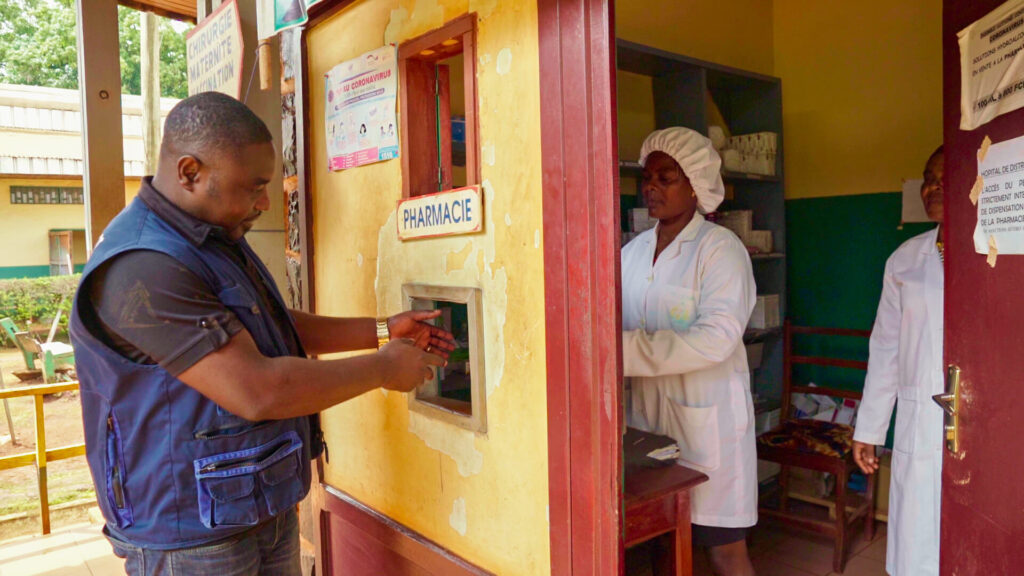Call for a New Cadre of Pharmaceutical Professionals to Strengthen LMIC Systems
Call for a New Cadre of Pharmaceutical Professionals to Strengthen LMIC Systems

When I began my career as a pharmacist in Cameroon more than two decades ago, I quickly understood the challenges of meeting patient needs in such a resource-constrained setting. I was employed as head of pharmaceutical services for a hospital group, a position the law required to be held by a licensed pharmacist. Similar legal requirements exist across many LMICs. But just because the law says a pharmacist should occupy that role, it doesn’t mean we’re equipped to do so.
My pharmacy school training focused on medicines, their indications, how they affect the human body, and potential side effects. It did not cover drug supply management—the activities involved in the sourcing, procurement, warehousing, distribution, and delivery of medications.
Yet there I was, trying to figure out how to budget and pay for large orders of medical supplies coming from Europe and North America. And there I was, dealing with massive quantities of donated medicines and equipment—some of which were expired or broken—while also trying to introduce efficiencies to the system to, for instance, prevent medicine stockouts or improve patient wait times.
This is the reality for many pharmacists and others working in pharmaceutical services in LMICs.
Meanwhile, donors recognize the need to address these problems, and they often spend resources funding interventions that require experts with years of experience, usually expats.
But it does not need to be the case. What if, instead, locals trained in pharmaceutical system strengthening could identify issues and call in technical experts as needed? What would it take to create this capacity locally?
I propose the development of a new cadre of professionals trained broadly in strengthening pharmaceutical systems to maximize donor funds and improve access to quality medicine and care for patients in LMICs. These professionals could be trained to initially evaluate a country’s pharmaceutical system, diagnose weaknesses, and facilitate design and implementation of solutions. Those could include digitizing information management systems, defining and applying continuous quality improvement processes, and planning for financial sustainability, to name a few.
Ideally, individuals from within LMICs would receive this training, making it a fitting way to transfer capabilities to the local partners and away from donors. Those expensive experts would be called in to address more complex challenges.
The WHO and others consistently call for making the world’s pharmaceutical systems stronger. Together with our colleagues at USAID, my organization, Management Sciences for Health, offers popular courses on Pharmaceutical Systems Strengthening 101 and Good Governance in Management of Medicines, free to everyone, through the Global Health eLearning Center, as well as a mentorship and coaching program.
In the absence of formal academic training on pharmaceutical systems strengthening, donor-funded programs like Systems for Improved Access to Pharmaceuticals and Services have also worked with academic institutions to create pharmaceutical management modules that were incorporated into pharmacy schools. We did this in Namibia, Vietnam, and even developed a guide for medical and nursing curricula.
So we’re not starting from scratch. Universities, pharmacy, and public health schools could now leverage that foundational content to develop a curriculum offering a broad overview of knowledge and competencies related to pharmaceutical system strengthening, catered to early-career development professionals. A stakeholder advisory group of academic, pharmacy, health care management, development professionals, and accrediting bodies would be a great starting point to design a sound curriculum.
If academic institutions address the need for this type of certified professional, then funders, civil society groups, governments, and policy makers will also have a role to play in engaging and employing pharmacy system generalists. Once those early steps have been accomplished, we can look farther down the road to forming certified professional associations.
Ten years from now, the field of pharmaceutical system strengthening could look very different—with trained and certified pharmaceutical system strengthening professionals maximizing donor dollars in the service of people who desperately need the goods and services that pharmaceutical systems provide. But we won’t get there until LMICs governments, economic blocks, donors, WHO, UN and other international agencies take the first step of engaging academia in implementing the above recommendations.